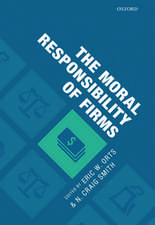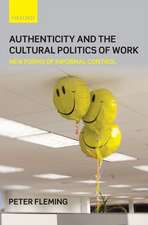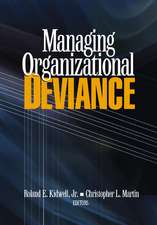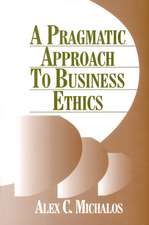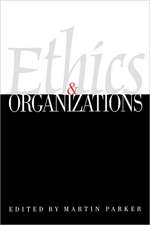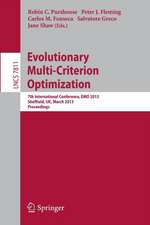The End of Corporate Social Responsibility: Crisis and Critique
Autor Peter Fleming, Marc V. Jonesen Limba Engleză Hardback – 13 dec 2012
A strident approach backed up by extensive use of case studies presents the argument that most CSR-related activity aims to gain legitimacy from consumers and employees, and therefore furthers the exploitative and colonizing agenda of the corporation. By examining CSR in the context of the political economy of late capitalism, the book puts the emphasis back on the fact that most large corporations are fundamentally driven by profit maximization, making CSR initiatives merely another means to this end. Rather than undermining or challenging unsustainable corporate practices CSR is exposed as an ideological practice that actually upholds the prominence of such practices.
As CSR gathers momentum in management practice and scholarship, students in the fields of CSR, business ethics, and strategy, will find this text a useful companion to counter received wisdom in this area.
| Toate formatele și edițiile | Preț | Express |
|---|---|---|
| Paperback (1) | 442.77 lei 6-8 săpt. | |
| SAGE Publications – 13 dec 2012 | 442.77 lei 6-8 săpt. | |
| Hardback (1) | 1106.85 lei 6-8 săpt. | |
| SAGE Publications – 13 dec 2012 | 1106.85 lei 6-8 săpt. |
Preț: 1106.85 lei
Preț vechi: 1349.82 lei
-18% Nou
Puncte Express: 1660
Preț estimativ în valută:
211.79€ • 221.15$ • 174.89£
211.79€ • 221.15$ • 174.89£
Carte tipărită la comandă
Livrare economică 15-29 aprilie
Preluare comenzi: 021 569.72.76
Specificații
ISBN-13: 9781849205153
ISBN-10: 1849205159
Pagini: 144
Dimensiuni: 170 x 242 x 15 mm
Greutate: 0.39 kg
Ediția:New.
Editura: SAGE Publications
Colecția Sage Publications Ltd
Locul publicării:London, United Kingdom
ISBN-10: 1849205159
Pagini: 144
Dimensiuni: 170 x 242 x 15 mm
Greutate: 0.39 kg
Ediția:New.
Editura: SAGE Publications
Colecția Sage Publications Ltd
Locul publicării:London, United Kingdom
Recenzii
'The US courts have advised corporations that they should carry out some good works, to deflect the danger that an "aroused public" might inquire into their actions and the enormous privileges granted to them by state power. This wide-ranging study brings to vivid light some of the ways in which the lessons are applied in the practices of "corporate social responsibility," revealing as well how discussion of such "ethical capitalism" often obscures the reality of capitalist ethics and its human consequences. It makes a strong case that the public should be aroused, and offers ideas as to what can be done.' -
Noam Chomsky
Institute Professor (retired), MIT, Cambridge MA
'This is an important book that offers a much needed critique of what has truly become what the authors call the 'opium of the people': corporate social responsibility. Fleming and Jones offer an incisive and unflinching critique of the religion of CSR' -
Bobby Banerjee
University of Western Sydney
Noam Chomsky
Institute Professor (retired), MIT, Cambridge MA
'This is an important book that offers a much needed critique of what has truly become what the authors call the 'opium of the people': corporate social responsibility. Fleming and Jones offer an incisive and unflinching critique of the religion of CSR' -
Bobby Banerjee
University of Western Sydney
Cuprins
Preface
Introduction: The End of Corporate Social Responsibility?
Welcome to the House of the Blind: What Corporate Social Responsibility Does Not See
The Multinational Corporation to the Rescue? Corporate Citizenship Theory
Stakeholder Theory and Other Fantasies of the 'Ethical Corporation'
The New Opium of the People: Corporate Social Responsibility and the Employee
From Propaganda to Parasite? Towards a Critical Political Economy of CSR
Conclusion: The Beginning of (Non) Corporate Social Responsibility?
Introduction: The End of Corporate Social Responsibility?
Welcome to the House of the Blind: What Corporate Social Responsibility Does Not See
The Multinational Corporation to the Rescue? Corporate Citizenship Theory
Stakeholder Theory and Other Fantasies of the 'Ethical Corporation'
The New Opium of the People: Corporate Social Responsibility and the Employee
From Propaganda to Parasite? Towards a Critical Political Economy of CSR
Conclusion: The Beginning of (Non) Corporate Social Responsibility?
Descriere
Packed with case studies and a wide range of international examples, this highly critical text reveals CSR as an attempt to gain legitimacy from consumers and employees, therefore furthering the exploitative and colonizing agenda of the corporation.


